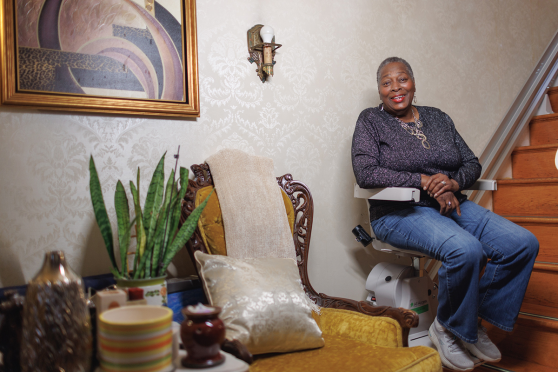Caregiving and Alzheimer's: Get by with a little help
How to make life a little easier for all involved

Caregiving requires time, dedication, and strength in any situation. But caring for a loved one with Alzheimer’s can be particularly consuming. “One of the biggest challenges is recognizing that changes in a family member’s cognition or behavior are due to the disease and are not things an individual is doing,” says Brian D. Carpenter, Ph.D., a professor of psychological and brain sciences at Washington University in St. Louis. But you’re not alone.
There are people and resources available to help. Maintain your sense of self as you both make your way through the upcoming years with these essential caregiving steps.
Learn about your loved one's condition
Understanding what is happening to your loved one can ease frustration when the person behaves differently. “You can get info about the prognosis, what to expect, and how to deal with some of the symptoms online,” says Gail Gibson Hunt, founder, former president, and CEO of the National Alliance for Caregiving. See resources below.
Don't neglect your own health
“If you get sick or are exhausted, you won’t be able to continue caregiving,” says Hunt. “You need to take care of yourself.” This includes exercising regularly, eating healthy, getting enough sleep, staying hydrated, and following the guidance of your own health care providers
Build a support system
The next step, says Hunt, is looking for tips on being a caregiver: “There are an endless number of online support groups and tips.” See resources in the box above. You can also seek assistance at your church or synagogue, from your family and friends, or from a local eldercare agency, says Hunt. They can connect you with people who can provide “respite care,” or care that lets you take a break from caregiving. Go see a movie, or even take a weekend vacation.
YOUR ONLINE SUPPORT SYSTEM
Learn more:
- Alzheimer’s Association (alz.org)
- Dementia Guide Expert for Families (a free app developed by the University of Illinois College of Nursing; available on iOS and Android)
- National Institute on Aging (nia.nih.gov/health/topics/dementia)
Get connected:
- AlzConnected (alzconnected.org)
- Alzheimer’s and Dementia Caregiver Center, from the Alzheimer’s Association (alz.org/care)
- Family Caregiver Alliance (caregiver.org/support-groups)
- National Alliance for Caregiving (caregiving.org)



